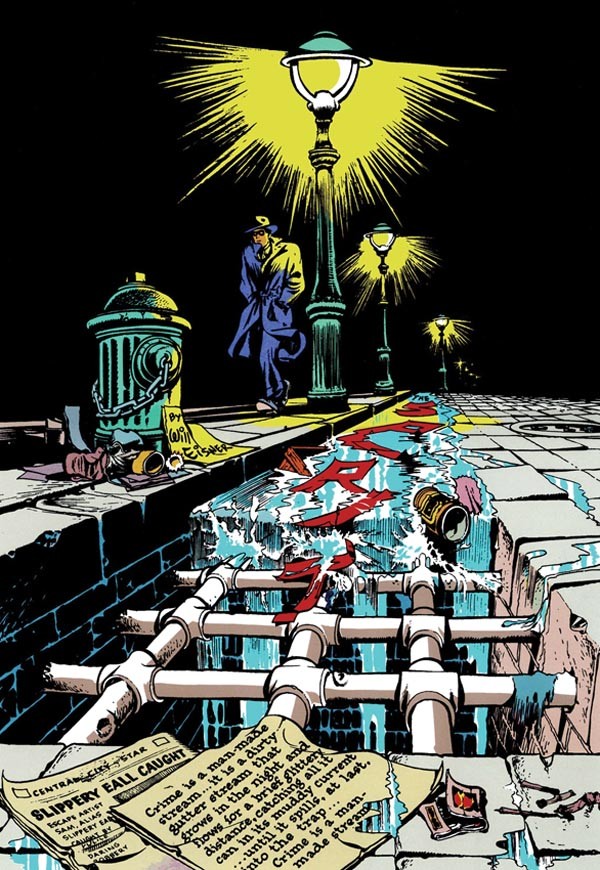Will Eisner's New York, a traveling exhibit from New York City's Museum of Comic and Cartoon Art, honors the creative achievements of this towering figure in the world of cartooning. As good as the work looks on the printed page, this Toonseum exhibit offers greater rewards in its surprisingly fresh original works, mostly black-and-white ink drawings, that leap off the page with their sureness of touch.
Bronx-born Eisner got an early break in kiddie comics, but in 1939 went out on his own to develop the noir-ish "The Spirit," renowned for its all-ages appeal. The Spirit was an urban crime-fighter and something of a hook on which Eisner could hang his observations of the urban landscape and his meditations on urban life; The Spirit himself didn't always figure prominently in the stories.
Drafted during World War II, Eisner produced educational cartoons for the Army, and later for various agencies and companies. The mid-'70s saw a revival of interest in "The Spirit," and Eisner's evolving ideas led him to produce A Contract With God and Other Tenement Stories, an early and highly influential graphic novel about a Jewish neighborhood on the Lower East Side. It was the first of the long-form comics that would occupy his last 30 years.
Eisner's gifts were legion: He was a talented and fearlessly inventive draftsman; he had a strong sense of narrative without being hobbled by convention; and his insight was built on observation and leavened with wisdom, yielding a nuanced psychology that particularly appealed to adults.
Eisner focused on one place — the New York City that he loved and which provided him with endless inspiration in the form of colorful characters, dramatic settings of street and stoop and rooftop, and off-the-avenue details so evocative that you can practically smell the urine. Recognized as a great comic artist, Eisner was simply a first-rate artist, tempering often-delightful entertainment with empathy for the daily struggles of all, particularly the dispossessed.
Along the way, Eisner taught, mentored Jules Feiffer and 1960s underground cartoonists, wrote widely used cartooning textbooks, and documented comics history through a series of influential artist interviews. He died in 2005 at age 87, a respected artist and a force in his chosen field, honored as the namesake of the Eisners, the Oscars of the comics field.














